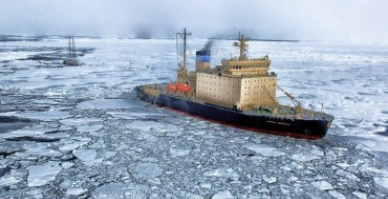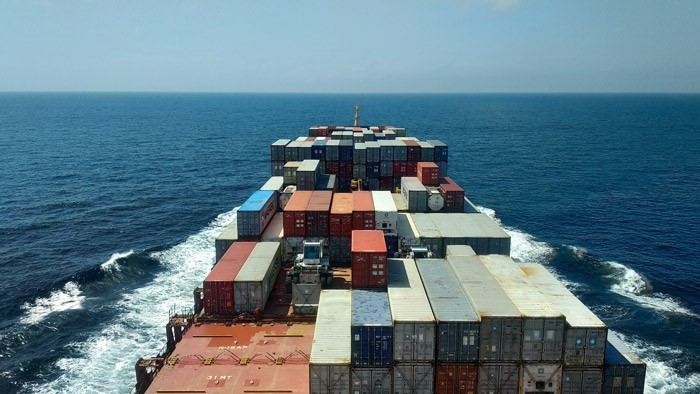Fuel contamination cases that have affected a number of ships this year are completely unrelated to low sulphur fuel oil (LSFO) blending, the International Bunker Industry Association (IBIA) said in the autumn 2018 edition of World Bunkering.
However, challenges that will occur when suppliers need to find new blend recipes to produce fuels to comply with the 0.5% sulphur limit are not to be underestimated. As explained, today’s bunker fuels both high sulphur fuel oil (HSFOs) and distillates are also by and large blends. Blending has been going on for decades to ensure bunkers meet the relevant ISO 8217 specifications. Traditionally, the blend target would be to bring viscosity, density and metals within the relevant specifications. In recent years, due to environmental regulations, sulphur has also become a blend target.
In this regard, nothing is changing in 2020 — low sulphur fuels will still be blends and the blend components need to be permissible under the scope of the ISO 8217 standard, according to IBIA. What will change is the blend composition as refinery residual that make up the biggest share of bunkers today are typically too high in sulphur. This may cause some teething problems before bunker fuel producers have identified the “recipes” that work best, but it should not open the door to including cutter stocks with contaminants, IBIA said.
An epidemic of ships experiencing fuel-related problems with seemingly on-spec fuels this year, starting in the US Gulf, has led to speculation about the root causes. More than 100 vessels have allegedly experienced broadly similar operational problems which have been attributed to bunker fuels. The first reports of severe operational problems came after ships started to use fuels lifted in the US Gulf area, chiefly Houston, mainly lifted during March, April and May this year. Later, in June and July, similar issues were reported by ships lifting bunkers in Panama and Singapore and possibly other locations. The issues associated with problem fuels have manifested in the form of sticking of fuel injection systems components, excessive sludge formation, or both. In some cases, these issues have been so severe as to cause a loss of main engine power.
For the most part, fuel testing agencies have indicated that the fuels met ISO 8217 specifications during routine testing against the standard. It was only when vessels began encountering problems that they commenced forensic-level investigative fuel analysis. Reports from testing agencies have identified certain commonalities between these fuels indicating they contain chemical contaminants from non-petroleum sources. The most commonly reported findings include phenols, fatty acids, and markers typically associated with Tall Oil.
Source:
https://worldmaritimenews.com/archives/262759/ibia-fuel-contamination-unrelated-to-low-sulphur-fuel-oil-blending/

In the latest attempt to reduce the environmental footprint of the maritime industry, the UN is drafting proposals that will ban the use and transport of heavy oil fuel (HFO) in the Arctic. While some environmentalists have praised the move, others warn the proposals are laced with waivers and loopholes that will allow many ships to continue operating on heavy fuel and sidestep emissions regulations.
While Antarctic waters are heavily protected, rules in the Arctic are more relaxed and allow the use of HFO. Also known as bunker fuel, HFO is notorious for its high emissions, including toxic pollutants such as nitrogen oxide, sulphur oxide and black carbon. The fuel is extremely vicious and takes a long time to break down, with the process slowed even further in cold environments like the Arctic. With such a high level of risk, the International Maritime Organisation is currently petitioning to ban the use of HFO in the Arctic by 2024, with the latest UN proposals set to support the phaseout.
ICCT says UN proposals ineffective
Despite the progress, the International Council on Clean Transportation (ICCT) says the proposals aren’t strict enough. A recent study released by the non-profit organisation revealed the waivers would allow more than 70% of vessels to continue operating on HFO, which could be devastating for the delicate Arctic ecosystem.
“HFO has already been banned in the Antarctic since 2011, without exemptions or waivers. It’s well beyond time that the Arctic receive the same protections,” says Bryan Comer, a senior marine researcher at ICCT. “If exemptions are included, they should expire well before 2029,” he adds.
Waives put Arctic ecosystem at risk
With temperatures in the Arctic increasing twice as fast as the rest of the world over the past 30 years, the ICCT says acting now is critical. “Results show that the proposed ban would have eliminated only 30% of HFO carriage and 16% of HFO use in 2019, and this would have reduced BC emissions by only 5%,” reads the study. “This is important because HFO use in the Arctic is increasing – it grew 75% between 2015 and 2019. As newer ships enter the Arctic fleet, especially oil tankers and bulk carriers, more ships will qualify for exemptions. Additionally, if ships reflag to Arctic states, more could qualify for waivers and the effectiveness of the ban would be further eroded.”
It’s not just the maritime industry working to reduce emissions, with refineries also under pressure to minimise their environmental footprints.
Sources: https://www.petro-online.com/news/analytical-instrumentation/11/breaking-news/how-is-the-un-changing-shipping-fuel-regulations/53246

A new concept for a collaborative global ecosystem of maritime transport decarbonisation initiatives has been introduced by the International Maritime Organization (IMO) and Singapore, during a global webinar on decarbonisation on September 17.
The NextGEN initiative aims to facilitate information sharing on decarbonisation initiatives across many stakeholders (including IMO member states, NGOs, industry and academia); identify opportunities and gaps for decarbonisation in the global shipping community; and create important networks and platforms for collaboration across these initiatives. This network initiative has been named “NextGEN”, where GEN is short for “Green and Efficient Navigation.”
The webinar, attended by more than 500 maritime leaders and professionals, from 63 countries, was jointly organised by IMO and the Maritime and Port Authority of Singapore.
During the webinar, IMO Secretary-General Kitack Lim recognised the unprecedented times in which we are living and expressed his belief that “the single biggest challenge we are still facing is the battle against global warming and climate change.” He called for more action to speed up research into zero carbon marine fuels.
“To achieve this, IMO is stepping up its efforts to act as a global forum and promoter in R&D in zero carbon marine fuels, bringing together interested stakeholders from public and private sectors, and also private and development banks and other potential donors around the world,” Lim said.
Singapore’s Minister for Transport, Ong Ye Kung, said the world needed to keep up the fight against climate change, even while dealing with the COVID-19 crisis. “No one can do this alone. It is a global ambition, to be accomplished by the international maritime community. But we all have capabilities, expertise, and resources to contribute to this endeavour. Singapore will do our part, and we look forward to the maritime community coming together, under the leadership of the IMO, to redouble our efforts and build a better, greener world,” Ong said.
Outlining the principal features of the NextGEN concept, Jose Matheickal, chief of the Department of Partnerships and projects of IMO, said further discussions were envisaged at the forthcoming Future of Shipping Conference in Singapore in February 2021. Dedicated NextGEN workshops in 2021 will be organised by IMO and supported by Singapore, to bring together various decarbonisation initiatives, in order to map out in detail the global shipping decarbonisation web.
A subsequent global mapping document will inform a wider audience through relevant IMO meetings. It is envisaged that NextGEN will act as a catalyst to spur collaboration among the various initiatives once the NextGEN collaboration platform is fully developed by 2022-2023.
Other speakers at the webinar gave presentations spanning the entire spectrum of various existing cooperation-frameworks on decarbonisation, ranging from initiatives in the Pacific to actions led by the maritime industry and financial institutions.
Panel discussions provided an opportunity to share views on additional opportunities for cooperation and outlining potential next steps to support achieving the 2050 level of ambition of reducing GHG emissions from international shipping by at least half compared to 2008, as set out in the IMO GHG Strategy.
Sources: https://www.fuelsandlubes.com/imo-singapore-propose-shipping-decarbonisation-concept/

